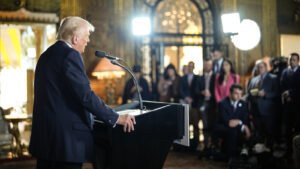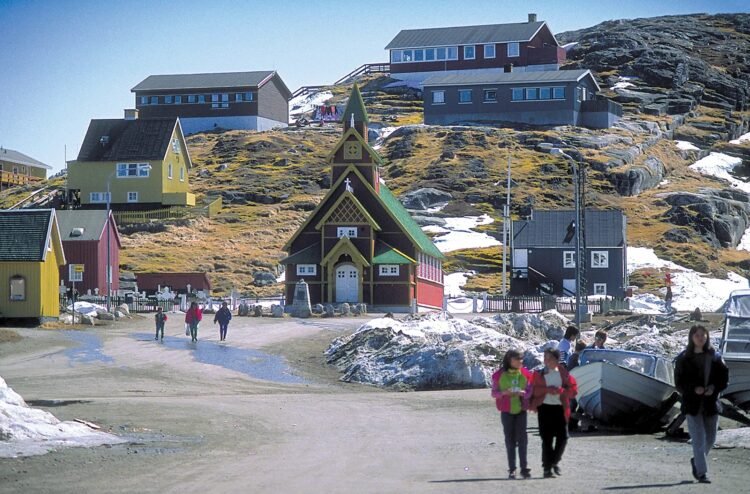COPENHAGEN – The United States currently has no plans to increase its military presence in Greenland, the U.S. Embassy in Copenhagen clarified on Thursday, following recent comments by President-elect Donald Trump, who renewed interest in acquiring the Arctic island.
Trump, set to take office on January 20, described U.S. control of Greenland as an “absolute necessity” and did not dismiss the possibility of using military or economic measures, such as tariffs on Denmark, to pursue this goal.
“There are no plans to expand the United States’ existing military footprint in Greenland,” a spokesperson for the embassy told Reuters. “We will continue collaborating closely with Copenhagen and Nuuk (Greenland’s capital) to ensure any proposals align with our shared security objectives.”
Greenland holds strategic importance for U.S. military operations, particularly its ballistic missile early-warning system, as the shortest route between Europe and North America passes over the island.
The U.S. military currently operates from the Pituffik Air Base, located in northwestern Greenland.
Formerly a Danish colony, Greenland now enjoys broad self-governance within the Kingdom of Denmark, although Copenhagen retains control over foreign affairs and security.
Danish Prime Minister Mette Frederiksen stated this week that she could not envision the United States, a close NATO ally, resorting to military intervention in Greenland. She also emphasized that the decision regarding Greenland’s future ultimately lies with its people.

Walking a Tightrope
Frederiksen convened a meeting with Denmark’s political leaders on Thursday evening to discuss Trump’s renewed interest.
In 2019, Frederiksen rejected a proposal from Trump to purchase Greenland, which led him to label her a “nasty woman” and cancel a planned visit to Denmark.
On Wednesday, Frederiksen hosted Greenland’s leader, Mute Egede, for discussions in Copenhagen and reached out to several European leaders regarding Trump’s remarks. Egede, who supports Greenlandic independence, has reiterated that the island is not for sale.
“They’re navigating a delicate balance,” said Lin Alexandra Mortensgaard, a Greenland expert at the Danish Institute for International Studies. “It’s a tightrope act between representing an autonomous territory, upholding the sovereignty of Denmark, and addressing the concerns of Denmark’s closest ally.”
European allies, including France and Germany, have responded to Trump’s comments by emphasizing the importance of respecting established borders.
David Lammy, Britain’s foreign minister, expressed confidence on Thursday that Trump recognized Greenland as part of Denmark. He suggested that Trump’s remarks were likely motivated by concerns over Russian and Chinese activities in the Arctic.
The Kremlin, meanwhile, stated that it was closely monitoring developments in Greenland, asserting that the Arctic remains within Russia’s strategic interests.
Danish Lawmakers Push Back
In Denmark, lawmakers across the political spectrum have urged Frederiksen to unequivocally reject any foreign attempts to alter Greenland’s status.
“The U.S. wants to take over Denmark’s role in Greenland, and the Danish government must issue a firm and clear rejection,” said Rasmus Jarlov, a conservative lawmaker and former minister, in a statement on X (formerly Twitter).
In Greenland, public opinion is divided. While some residents welcome Trump’s interest, others view his remarks with skepticism.

 English
English



























































